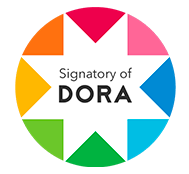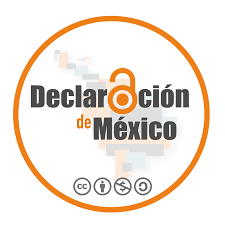Creative processes in the arts: Undisciplined perspectives
Keywords:
creativity, arts, experiences, sociocultural perspectives, artistic creativityAbstract
We share some reflections emerging from participation in the discussion table Creative processes in the arts from a multidisciplinary perspective, within the framework of the GAPS2 Global Arts and Psychology Seminar "Creativity in music and the arts" held in York, Graz, La Plata and Melbourne, between September 14 and 16, 2023. Multiple voices, stories and experiences burst onto the discussion table that clearly show the diversity of fields of knowledge, contexts and moments where creativity is possible. Experiences allow us to define creativity as a complex and undisciplined process, in which the arts are challenged.
Downloads
Metrics
References
Abraham, A. (2018). The neuroscience of creativity. Cambridge University Press.
Abraham, A. (2023). Why the standard definition of creativity fails to capture the creative act. Qeios. https://doi.org/10.32388/LS88G9
Amaral, L. (2011). Tejiendo redes y miradas de afectos. El arte público contemporáneo: geografías de la inclusión y transformación social. Creatividad y Sociedad: Revista de la Asociación para la Creatividad, (17), 1-10.
Bang, C. (2013). El arte participativo en el espacio público y la creación colectiva para la transformación social. Experiencias actuales que potencian la creatividad comunitaria en la ciudad de Buenos Aires. Creatividad y Sociedad: Revista de la Asociación para la Creatividad, (20), 1-25.
Caldwell, L. (2005). Leisure and health: Why is leisure therapeutic? British Journal of Guidance & Counselling, 33(1), 7-26. https://doi.org/10.1080/03069880412331335939
Chen, Q., Beaty, R. E. y Qiu, J. (2020). Mapping the artistic brain: Common and distinct neural activations associated with musical, drawing, and literary creativity. Human Brain Mapping, 41(12), 3403-3419. https://doi.org/10.1002/hbm.25025
Corbalán, J. (2022). Creatividad. Desafiando la incertidumbre. EMSE EDAPP.
Cristiano, J. L. (2018). Agency, structure, and creativity: three analytical models. Sociológica, 33(93), 119-150.
Elisondo, R. (2016). Creativity is always social. Creativity: Theories-Research-Applications, 3(2), 194-210. https://doi.org/10.1515/ctra-2016-0013
Elisondo, R. (2023). Escrituras creativas en la universidad. Algunas ideas, experiencias e indisciplinas. Ñawi: Arte Diseño Comunicación, 7(1), 173-193. https://doi.org/10.37785/nw.v7n1.a9
Elisondo, R. y Donolo, D. S. (2016). Los creativos y las ciudades. En M. Chaves Martín (Ed.), Ciudad y Comunicación (pp. 235-242). Universidad Complutense de Madrid. https://ri.conicet.gov.ar/handle/11336/114669
Glaveanu, V. P. (2013). Rewriting the language of creativity: the five A’s framework. Review of General Psychology, 17(1), 69-81. https://doi.org/10.1037/a0029528
Glaveanu, V. P., Hanchett Hanson, M., Baer, J., Barbot, B., Clapp, E. P., Corazza, G. E., Hennessey, B., Kaufman, J. C., Lebuda, I., Lubart, T., Montuori, A., Ness, I. J., Plucker, J., Reiter-Palmon, R., Sierra, Z., Simonton, D. K., Souza Neves-Pereira, M. y Sternberg, R. J. (2020). Advancing creativity theory and research: a socio‐cultural manifiesto. Journal of Creative Behavior, 54(3), 741-745. https://doi.org/10.1002/jocb.395
Kapoor, K., Tagat, A. y Cropley, D. (2016). Fifty shades of creativity: Case studies of malevolent creativity in art, science, and technology. En F. Reisman (Ed.), Creativity in Arts, Science and Technology (pp. 25-45). KIE Conference Publications.
McCormick, B. (2005). Arte y pobreza: integración social a través de movimientos culturales. Independent Study Project (ISP) Collection.
Oppert, M. L., O’Keeffe, V., Bensnes, M. S., Grecu, A. L. y Cropley, D. H. (2023). The value of creativity: A scoping review. Journal of Creativity, 33(2). https://doi.org/10.1016/j.yjoc.2023.100059
Organización de las Naciones Unidas para la Educación, la Ciencia y la Cultura. (2022). Re|pensar las políticas para la creatividad. Plantear la cultura como un bien público global. https://www.unesco.org/reports/reshaping-creativity/2022/es
Qian, M., Plucker, J. A. y Yang, X. (2019). Is creativity domain specific or domain general? Evidence from multilevel explanatory item response theory models. Thinking Skills and Creativity, 33. https://doi.org/10.1016/j.tsc.2019.100571
Richards, R. (2007). Everyday creativity and the arts. World Futures, 63(7), 500-525. https://doi.org/10.1080/02604020701572707
Romero, J. (2010). Creatividad distribuida y otros apoyos para la educación creadora. Pulso. Revista de Educación, (33), 87-107. https://doi.org/10.58265/pulso.5011
Runco, M. A. y Jaeger, G. J. (2012). The standard definition of creativity. Creativity Research Journal, 24(1), 92-96. https://doi.org/10.1080/10400419.2012.650092
Sawyer, R. K. (2021). The iterative and improvisational nature of the creative process. Journal of Creativity, 31. https://doi.org/10.1016/j.yjoc.2021.100002
Vera, M. A. M. (2023). Inteligencia de enjambre: de los sistemas naturales a los artificiales. Revista Digital Universitaria, 24(1). http://doi.org/10.22201/cuaieed.16076079e.2023.24.1.11
Wald, G. (2009). Promoción de la salud a través del arte: estudio de caso de un taller de fotografía en “Ciudad Oculta”, la villa Nº 15 de la Ciudad de Buenos Aires. Salud Colectiva, 5(3), 345-362.
Published
How to Cite
Issue
Section
License
Copyright (c) 2024 Romina Cecilia Elisondo

This work is licensed under a Creative Commons Attribution-NonCommercial-ShareAlike 4.0 International License.
Politica vigente desde octubre de 2019
La aceptación del manuscrito por parte de la revista implica la cesión no exclusiva de los derechos patrimoniales de los/as autores/as en favor del editor, quien permite la reutilización, luego de su edición (postprint), bajo una Licencia Creative Commons Atribución-NoComercial-CompartirIgual 4.0 Internacional (CC BY-NC-SA 4.0)
Acorde a estos términos, el material se puede copiar y redistribuir en cualquier medio o formato siempre que a) se cite la autoría y la fuente original de su publicación (revista y URL de la obra), se brinde el acceso a la licencia y se indique si se realizaron cambios; b) no se utilice el material para fines comerciales.
La cesión de derechos no exclusivos implica que luego de su edición (postprint) en Epistemus los/as autores/as pueden publicar su trabajo en cualquier idioma, medio y formato; en tales casos, se solicita que se consigne que el material fue publicado originalmente en esta revista.
Tal cesión supone, también, la autorización de los/as autores/as para que el trabajo sea cosechado por SEDICI, el repositorio institucional de la Universidad Nacional de La Plata, y sea difundido en las bases de datos que el equipo editorial considere adecuadas para incrementar la visibilidad de la publicación y de sus autores/as.
Asimismo, la revista incentiva a los/as autores/as para que luego de su publicación en Epistemus depositen sus producciones en otros repositorios institucionales y temáticos, bajo el principio de que ofrecer a la sociedad la producción científica y académica sin restricciones contribuye a un mayor intercambio del conocimiento global.
















